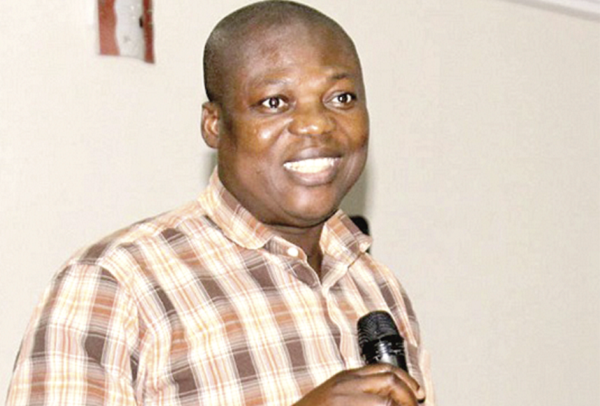
Lower interest rates in high NPLs regime unattainable - Prof Gatsi
An economist, Prof. John Gartchie Gatsi, has urged the Bank of Ghana (BoG) to tackle the issue of high Non-Performing Loans (NPLs) in the banking industry.
This, he said, was the only way to address the high interest rate in the country.
He deduced that the root cause of high interest rates was as a result of how the economy was being managed, making the average borrower a potential defaulter, hence the rising NPLs.
Prof. Gatsi, who is also the Head of the Department of Finance at the School of Business, University of Cape Coast, told the GRAPHIC BUSINESS in an interview that it was not possible to have high NPL regime and have lower lending rates.
“The way the NPL is treated is such that it becomes a cost to the banks and the financial institutions and that affects the pricing of their loans.
Thus, the financial stability report by the Bank of Ghana (BoG) is indicating that on average, indigenous small and medium enterprises contribute more than 70 per cent to NPL.
That is the situation we find ourselves,” he stated.
Statistics from the BoG indicates that the quality of loans improved, as industry NPLs ratio eased to 21.3 per cent in August 2018 from 21.9 per cent for the corresponding period in 2017.
At the recent Monetary Policy Committee(MPC) meeting, the BoG also noted that it had approved a loan write-off of GH¢1.2 billion for the industry which should reduce the NPL ratio significantly to 18.4 per cent.
Background
President Nana Addo Dankwa Akufo-Addo has off late been lamenting on interest rates; first was at the opening of Ecobank’s head office in March and just last week at Stanchart head office inauguration in Accra.
He stated that the current bank lending rate of 27.5 per cent was strangulating the private sector and appealed to banks to reduce their interest rates to compliment the efforts being made by the government to create a more stable macro-economic framework in the country.
However, Prof. Gatsi said there was a general high cost of banking in Ghana, “so, if you see the cost income ratio of many of the banks, it’s high and that will reflect in pricing of their loan to the private sector.”
He indicated that reduction in policy rate had shown that that will not do the trick.
“We need to also check clearly that reducing the policy rate is good, but is it driven by real factors that should drive down the policy rate? So if it’s not driven down by the real factors, there is no way the commercial banking sector will respond to a lower lending rate regime of commercial banks,” he said.
He continued, “These are the things we should be asking ourselves. The factors we consider before reducing policy rates from 26 per cent to 17 per cent. Are they real factors? If they are not, there is no way it will reflect on the lending.”
Legislating rates?
He dismissed arguments that lending rates should be legislated.
“How can you legislate rates when the rates are products of economic factors? In some countries, you may see rates oscillating between a floor and a ceiling, and even that will be determined by economic factors,” he explained.
According to Prof. Gatsi, legislating may be done, but then it should be noted that the floor is not set arbitrarily, the ceiling is not set arbitrarily and that they are all set by the influence economic factors.
“So the bottom line is how to manage our economy in a manner that will reflect on other outcome. That is the challenge we need to focus on,” he stated.
Ghana Reference Rate (GRR)
A new reference rate for lending, the GRR, took effect in April to serve as a guide in the setting of interest rates on loans by banks.
It was pegged at 16.82 per cent for April 2017 as announced in a press statement from the BoG.
The statement quoted the Governor, Dr Ernest Addison as saying that the BoG had been working with the Ghana Association of Bankers (GAB) to help find solutions to high lending rates which slows down economic growth and contribute to poverty.
Therefore, one of those solutions, he said, was the GRR which would be revised every month to serve as “a Reference Rate rather than a Minimum Lending Rate for all banks.” — GB